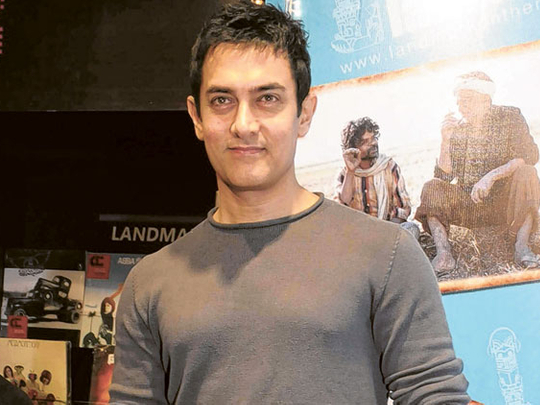
New Delhi: Aamir Khan is an Indian film actor, director, producer, television personality, social worker, screenwriter and philanthropist. Through his successful career in Hindi films, Khan has established himself as one of the most popular and influential actors in Indian cinema. He is the recipient of numerous awards, including four National Film Awards and seven Filmfare Awards. He was honoured by the Indian government with the Padma Shri in 2003 and the Padma Bhushan in 2010.
Khan has a reputation for shunning award ceremonies and not accepting any popular Indian film awards. Though nominated many times, he has not attended any Indian film award ceremony as he feels “Indian film awards lack credibility”. He was married to his first wife, Reena Dutta, for 15 years after which he married film director Kiran Rao. He has three children — two with Dutta, and one with Rao through surrogacy.
In addition to acting, Khan is a humanitarian activist and has participated in and spoken out for various social causes, some of which have sparked political controversy.
In April 2006, Khan participated in demonstrations by the ‘Narmada Bachao Andolan’ (Save the Narmada Campaign) with its leader Medha Patkar, after the Gujarat government’s decision to raise the height of the Narmada dam.
He also lent his support to the anti-corruption ‘Janlokpal Bill’ movement, led by Anna Hazare in August 2011. On November 30, 2011, he was appointed national brand ambassador of Unicef to promote child nutrition. He is part of the government organised Information Education Communication campaign to raise awareness about malnutrition.
He has created, and featured as the host of the television talk show Satyamev Jayate (Truth Prevails), through which he highlighted sensitive social issues in India. He made it to the cover of Time magazine’s Asia edition in September 2012 with title Khan’s Quest — He is breaking the Bollywood mould by tackling India’s social evils. Can an actor change a nation?
Interestingly, this month Bollywood superstar Shah Rukh Khan joined the chorus against “growing intolerance” in the country, saying that “religious intolerance and not being secular is the worst kind of crime that you can do as a patriot”.
“It is stupid to be intolerant and this is our biggest issue, not just an issue. People put words into the air even before thinking and here is a secular country. Here is a country perhaps for the last ten years that is on the cusp of going beyond what we think. But we will never be a superpower if we are not going to believe that all religions are equal,” Shahrukh said on his birthday on November 2.
A little before that, distinguished actor and writer Girish Karnad triggered a major row in Karnataka after he joined a group of leftist activists protesting against the beef ban in Maharashtra by eating beef biryani in public in April. Although he did not eat the biryani himself, Karnad’s show of solidarity prompted a man claiming to be his relative to file a case of religious incitement against him at a local court here.
And students of Film and Television Institute of India (FTII), the country’s premier film education centre, staged a 139-day strike from June 12 this year, in protest against the appointment of Gajendra Chauhan as the institute’s chairman, claiming the artiste was unfit for the position. They view the appointment as an attempt by the Narendra Modi-led BJP government to foist its right-wing agenda upon the institute. Chauhan has long been associated with Hindu fundamentalist group Rashtriya Swayamsewak Sangh.
And now with films by FTII students not being screened at the International Film Festival of India in Goa, students of the institute, in association with Nossa Senhora de Piedade Institute operated by the influential Roman Catholic Church in Goa, have planned to hold a parallel film festival to protest against the decision.











